
art yasmina reza pdf
Yasmina Reza, a renowned French playwright, crafted Art, a thought-provoking comedy exploring friendship, taste, and the subjective nature of art, premiered in 1994 to critical acclaim.
Biography of Yasmina Reza
Yasmina Reza, born in 1959 to a Hungarian mother and an Iranian-Russian father, is a celebrated French playwright, novelist, and actress. Known for her sharp wit and insightful exploration of human relationships, Reza gained international acclaim with her plays Art and God of Carnage. Her work often delves into themes of societal norms, friendship, and the complexities of modern life. Reza’s writing is characterized by its brevity, clarity, and ability to provoke thought while maintaining a humorous tone. She has received numerous awards, including Tony and Olivier Awards, solidifying her reputation as one of the most prominent voices in contemporary theatre. Her unique perspective and ability to resonate with diverse audiences have made her a household name globally.
Overview of the Play “Art”
Art, written by Yasmina Reza, is a compelling comedy that delves into the dynamics of friendship and the subjective nature of art. Premiering in Paris in 1994, the play revolves around three friends—Serge, Marc, and Yvan—and their disagreement over a white painting Serge purchases. This simple premise unfolds into a deeper exploration of egos, insecurities, and the true meaning of art. The play’s minimalist setting, with scenes shifting between the characters’ homes, emphasizes the evolving nature of their relationships. Reza’s sharp dialogue and nuanced character development have made Art a global success, resonating with audiences for its universal themes and humorous yet poignant commentary on human interaction. Its timeless appeal continues to attract theatre enthusiasts worldwide, solidifying its place as a modern classic.

Plot Summary of “Art”
The play revolves around three friends—Serge, Marc, and Yvan—and their conflict over a controversial white painting Serge purchases. The tension escalates, revealing insecurities and strained friendships.
Setting and Structure
The play Art by Yasmina Reza is set in a minimalist environment, with scenes unfolding in the apartments of Serge, Marc, and Yvan. The setting is intentionally neutral, with no significant changes except for the controversial white painting displayed in each space. This simplicity allows the dialogue and interactions between the characters to take center stage. The structure of the play is sequential, moving seamlessly from one character’s home to another, maintaining a consistent tone throughout. The minimalistic setting emphasizes the psychological dynamics and the absurdity of the characters’ debates, creating a stark contrast between the simplicity of the environment and the complexity of their relationships. This structural approach highlights Reza’s ability to explore deep themes through subtle yet powerful staging. The play’s setting and structure are integral to its enduring success and universal appeal.
Key Themes and Conflicts
Yasmina Reza’s Art delves into the intricacies of friendship, personal taste, and identity through the conflict sparked by Serge’s purchase of a controversial white painting. The play examines how subjective interpretations of art reveal deeper insecurities and judgments among friends. Marc’s disdain for the painting symbolizes his broader disapproval of Serge’s evolving identity, while Yvan’s attempts to mediate expose his own vulnerability. The conflict escalates as the characters’ dialogue becomes a reflection of their underlying fears and pretensions. Reza uses humor and satire to highlight the fragility of relationships when personal opinions collide. The themes of aesthetic judgment, class, and the illusion of sophistication are woven into the tension, creating a compelling exploration of human interaction and the power of art to provoke emotional responses. The play’s conflict-driven narrative keeps audiences engaged while prompting reflection on the nature of friendship and self-perception.
Themes Explored in “Art”
Yasmina Reza’s Art explores themes of friendship dynamics, the subjective nature of art, and materialism, offering insights into human relationships and cultural perceptions.
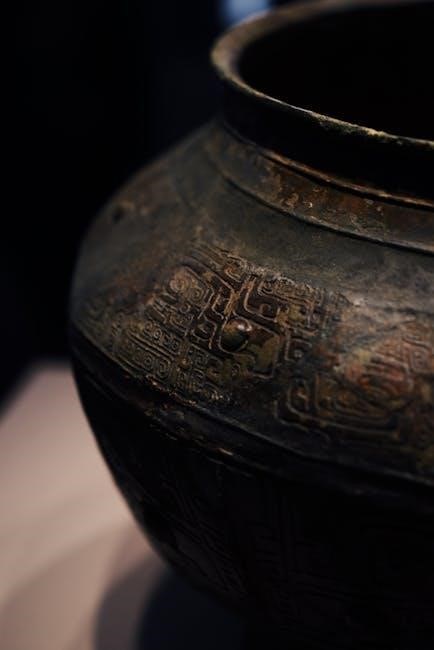
The Subjective Nature of Art
Yasmina Reza’s Art delves into the subjective nature of art through Serge’s purchase of a controversial white painting. This sparks debates among the characters, highlighting how art’s value is deeply personal and influenced by individual perspectives. Serge views the piece as a masterpiece, while Marc dismisses it as meaningless, and Yvan struggles to articulate his opinion. The play illustrates how art can evoke strong emotions and conflicting interpretations, challenging the notion of objective artistic merit. Reza uses humor and tension to explore how societal expectations, personal taste, and cultural context shape perceptions of art. Ultimately, the play raises questions about what defines art and whether its significance lies in its aesthetic appeal or its ability to provoke thought and dialogue.
Friendship and Betrayal
Yasmina Reza’s Art masterfully explores the complexities of friendship and betrayal through the strained relationships among Serge, Marc, and Yvan. The play unfolds as Serge’s purchase of an expensive, minimalist painting triggers a deepening rift between the trio. Marc’s candid criticism of Serge’s acquisition sparks tension, while Yvan’s attempts to mediate only amplify the emotional distance. The dynamics shift as Serge’s pride and Marc’s disdain clash, revealing underlying insecurities and unspoken resentments. Yvan, often the voice of reason, struggles to navigate his loyalty to both friends, ultimately feeling alienated. The play highlights how betrayals, whether perceived or real, can erode trust and test the resilience of long-standing friendships. Through their interactions, Reza probes the fragility of relationships and the ways in which misunderstandings can lead to irreversible consequences. The tension between camaraderie and conflict forms the emotional core of the play.
Materialism and Taste
Yasmina Reza’s Art delves into the themes of materialism and personal taste, as the play centers on Serge’s controversial purchase of a costly, minimalist painting. The artwork, a stark white canvas, becomes a symbol of Serge’s newfound sophistication and wealth, while Marc and Yvan view it as a pretentious indulgence; Marc’s criticism of the painting reflects his disdain for what he perceives as Serge’s superficiality, while Serge defends it as a bold statement of modern art. The debate over the painting’s value exposes the trio’s differing tastes and priorities, with materialism clashing against aesthetic judgment. Reza uses the painting to explore how societal status and personal identity are often intertwined with possessions and cultural choices, revealing the tension between authenticity and pretension in contemporary life. The play critiques the commodification of art and the ways in which taste can be both a source of pride and a marker of division.
Characters in “Art”
The play revolves around three friends: Serge, a dermatologist with a passion for modern art; Marc, a pragmatic engineer; and Yvan, a insecure, indecisive man. Their interactions reveal complex dynamics of friendship, rivalry, and judgment, highlighting their distinct personalities and conflicting values.
Character Analysis: Serge
Serge, a dermatologist, is a central character whose purchase of a controversial white painting sparks the play’s tensions. His confidence and refined taste in modern art contrast with his friends’ skepticism. Serge’s passion for art reflects his desire for sophistication, while his insistence on justifying the painting’s value reveals insecurities. His relationship with Marc, particularly, is strained as their differing opinions escalate into personal attacks. Serge’s character underscores themes of pretension, friendship dynamics, and the subjective nature of art. His interactions with Marc and Yvan highlight his evolving role as both a defender of modern art and a symbol of middle-class aspirations. Through Serge, Reza explores how personal identity and social status intertwine with aesthetic judgments, making him a pivotal figure in the play’s exploration of human relationships and cultural critique.
Character Analysis: Marc
Marc, a pragmatic and blunt engineer, emerges as the voice of skepticism in the play. His immediate dismissal of Serge’s expensive white painting as meaningless sets off a chain of conflicts. Marc’s character is defined by his straightforwardness and lack of pretension, which often leads to harsh judgments. His critique of the painting extends to a broader critique of Serge’s taste and values, revealing underlying tensions in their friendship. Marc’s inability to understand Serge’s perspective highlights the clash between artistic appreciation and practicality. His interactions with Yvan further expose his rigid views, making him a catalyst for the play’s central conflicts. Through Marc, Reza examines how differing perspectives on art can strain relationships and challenge long-held bonds of trust and camaraderie.
Character Analysis: Yvan
Yvan, often portrayed as the Everyman of the trio, is a character torn between his own identity and the pressures of his relationships. His struggle to assert himself is evident in his attempts to navigate the conflict between Serge and Marc. Yvan’s emotional instability and tendency to overreact highlight his insecurity, particularly as he feels overshadowed by his friends’ stronger personalities. His personal life, including his upcoming wedding and complicated family dynamics, further underscores his vulnerability. Despite his efforts to mediate, Yvan often finds himself caught in the crossfire, revealing his lack of confidence and inability to take a firm stance. Through Yvan’s character, Reza explores themes of identity, self-doubt, and the challenges of maintaining balance in friendships, making him a relatable and sympathetic figure in the play.

Productions and Performances
Art has been staged globally, winning numerous awards, including the 1998 Tony Award for Best Play. Notable actors like Nigel Havers and Stephen Tompkinson have headlined productions, ensuring its enduring appeal.
French Premiere and Initial Reception
Art premiered in 1994 at the Comédie des Champs-Élysées in Paris, directed by Patrice Kerbrat. The original cast featured Pierre Arditi, Fabrice Luchini, and Pierre Vaneck, whose performances were widely praised. The play was an instant success, captivating French audiences with its witty dialogue and exploration of friendship and art. Critics lauded its nuanced humor and thought-provoking themes, establishing Reza as a major voice in contemporary theatre. The production’s minimalist set, focusing on a single painting, resonated with audiences, sparking debates about aesthetics and personal taste. The play’s Parisian run laid the groundwork for its international acclaim, showcasing Reza’s ability to blend comedy with profound introspection. Its success in France marked the beginning of a global phenomenon, solidifying Art as a modern classic.
International Productions and Adaptations
Art achieved global success with productions in over 30 countries. The British premiere occurred in 1996 at Wyndham’s Theatre in London, adapted by Christopher Hampton, winning the Olivier Award for Best Comedy. In the United States, the play opened on Broadway in 1998, earning a Tony Award for Best Play, further solidifying its international acclaim. Adaptations in languages such as Spanish, Hindi, and Russian have allowed diverse audiences to engage with Reza’s sharp wit and universal themes. Notable directors like Krystian Lupa and Felix Prat have brought unique interpretations to the stage, maintaining the play’s relevance. Its ability to transcend cultural boundaries highlights the timelessness of Reza’s exploration of art, friendship, and human vanity.
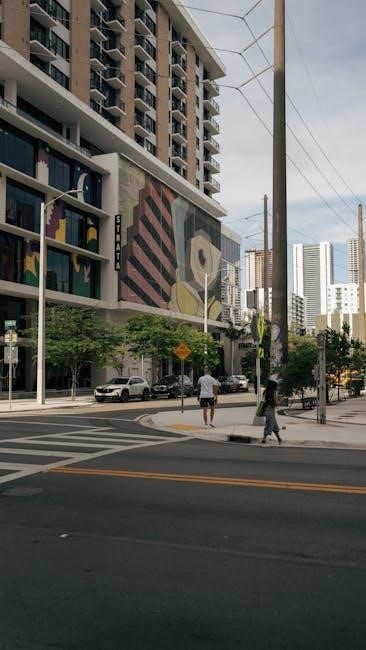
Notable Actors and Their Roles
The original French production of Art featured Pierre Arditi as Serge, Pierre Vaneck as Marc, and Fabrice Luchini as Yvan, setting the tone for the play’s witty dialogue and complex characters. In the British adaptation, Nigel Havers, Denis Lawson, and Stephen Tompkinson brought their own interpretations to the roles, earning critical acclaim. The U.S. production starred Alan Arkin as Marc, Victor Garber as Serge, and Alfred Molina as Yvan, with their performances praised for capturing the play’s nuanced humor and depth. Notably, the play’s success attracted high-profile actors, further elevating its reputation as a showcase for comedic talent. These actors’ portrayals of Serge, Marc, and Yvan have become iconic, highlighting the universality of the characters and their relatable struggles with friendship and ego. Their performances remain central to the play’s enduring appeal and its ability to resonate with diverse audiences worldwide.
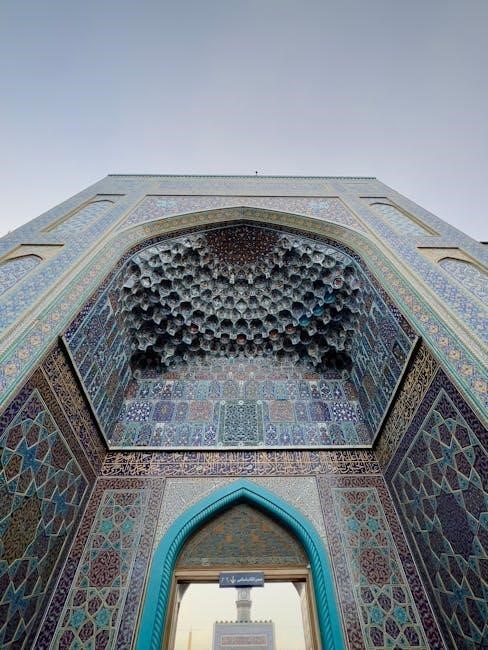
Translations and Language Adaptations
Art has been translated into over 40 languages, with the English version by Christopher Hampton achieving significant success. Its universal themes transcend linguistic boundaries, making it accessible globally.
English Translation by Christopher Hampton
Christopher Hampton’s English translation of Art has been instrumental in the play’s global success, capturing the nuances of Reza’s original French dialogue. Hampton, a renowned playwright and translator, ensured the adaptation retained the wit and depth of the original, making it accessible to English-speaking audiences. The translation premiered in London in 1996 and went on to win the Olivier Award for Best Comedy. Hampton’s version has been praised for its fidelity to Reza’s intent while resonating with Anglophone cultures. The English translation has enabled Art to reach a broader audience, contributing to its international acclaim. It is widely available in print and digital formats, including PDF, making it a popular choice for both theatrical performances and academic study. Hampton’s work remains a cornerstone of the play’s enduring appeal in English-speaking countries.
Other Language Adaptations
Yasmina Reza’s Art has been translated into numerous languages, ensuring its global reach. Beyond Christopher Hampton’s English version, the play has been adapted into Spanish, German, Italian, Hindi, and Russian, among others. These translations maintain the play’s core themes while adapting cultural nuances. For instance, the Hindi adaptation, staged in India, successfully resonated with local audiences. Similarly, Spanish and Russian versions have been well-received, showcasing the play’s universal appeal. PDF versions of these translations are widely available, enabling readers to access the text in their native languages. This linguistic diversity highlights Reza’s ability to transcend cultural boundaries, making Art a global phenomenon. The adaptability of the play underscores its timeless relevance, ensuring its continued popularity across diverse linguistic and cultural landscapes. Its availability in multiple languages further solidifies its place in contemporary theatre.
Cultural Impact Across Languages
Yasmina Reza’s Art has transcended linguistic and cultural barriers, achieving significant impact worldwide. Its translations into over 30 languages, including Spanish, German, Italian, Hindi, and Russian, have made it accessible to diverse audiences. The play’s exploration of universal themes like friendship and artistic perception resonates across cultures. In India, the Hindi adaptation was well-received, while in Russia, it sparked debates on art’s subjective nature. The play’s success in these regions highlights its ability to connect with audiences from different cultural backgrounds. PDF versions of these translations have further amplified its reach, making it a staple in global theatre. The play’s cultural impact lies in its ability to provoke thought and conversation, regardless of the audience’s language or cultural context, solidifying its place as a modern theatrical masterpiece.
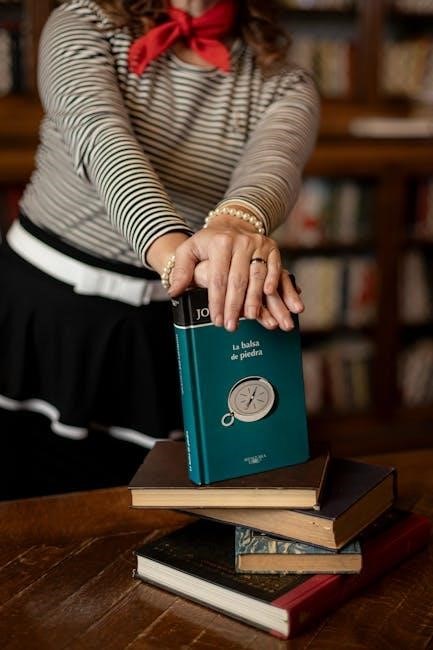
Critical Reception and Awards
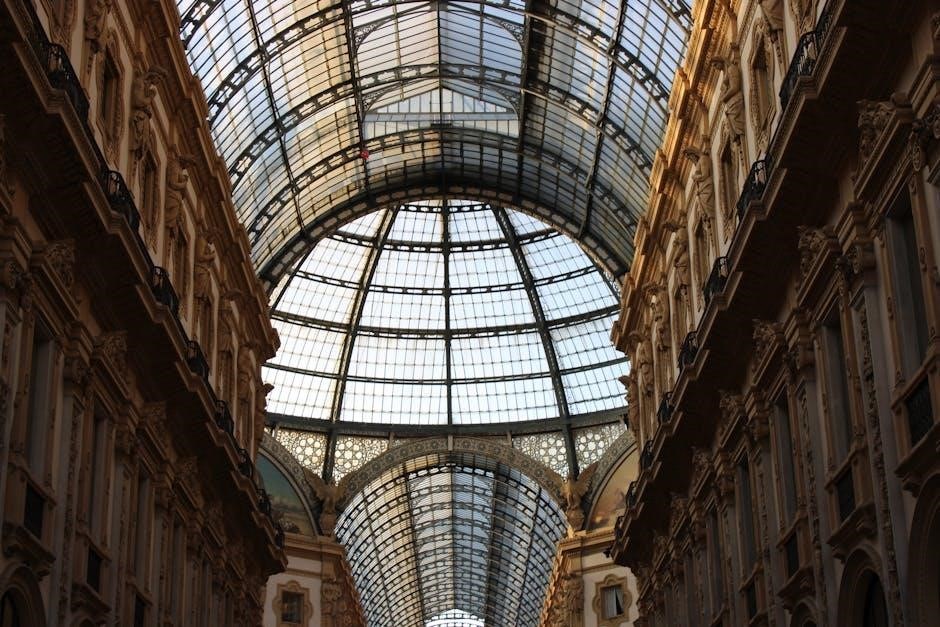
Art received widespread critical acclaim, winning the 1998 Tony Award for Best Play and the 1996 Olivier Award for Best Comedy, solidifying its reputation as a modern classic.

Major Awards Won

Art achieved remarkable success, earning the prestigious 1998 Tony Award for Best Play and the 1996 Olivier Award for Best Comedy. These accolades highlight the play’s universal appeal and critical acclaim.
Critical Reviews and Analysis
Art has garnered widespread critical acclaim for its sharp wit and nuanced exploration of human relationships. Critics praise its ability to balance humor with profound insights into the subjective nature of art and the fragility of friendships. The play’s minimalist structure and dialogue-driven narrative have been highlighted as masterful, allowing the audience to engage deeply with the characters’ emotional journeys. Reviewers often note how Reza cleverly uses the white painting as a metaphor for the broader societal obsession with status and taste. The play’s universal themes have resonated across cultures, making it a timeless piece in contemporary theatre. Its ability to provoke both laughter and introspection has solidified its place as a modern classic, celebrated for its intellectual depth and emotional resonance.
Impact on Contemporary Theatre
Art by Yasmina Reza has left an indelible mark on contemporary theatre, influencing playwrights and audiences alike. Its concise, dialogue-driven format has inspired a shift toward minimalist storytelling, emphasizing character dynamics over elaborate sets. The play’s exploration of universal themes such as friendship, aesthetics, and societal pretensions has made it a benchmark for modern drama. Its success has paved the way for more intimate, intellectually stimulating works that challenge audiences to reflect on their own values. The play’s enduring popularity, with productions worldwide, underscores its relevance and ability to transcend cultural boundaries. Art continues to be a staple in theatre repertoires, proving that simplicity and depth can coexist to create a powerful theatrical experience that resonates long after the curtain falls.
PDF Versions and Accessibility
Yasmina Reza’s Art is widely available in PDF format, accessible via platforms like Open Library. Legal downloads ensure adherence to copyright laws, supporting authors and intellectual property rights.
Availability of “Art” in PDF Format
Art by Yasmina Reza is widely accessible in PDF format, ensuring global readership. Platforms like Open Library offer free and legal downloads, preserving copyright compliance and intellectual property respect. This availability has made the play a staple in modern theatre studies and personal reading collections, allowing audiences to engage with Reza’s insightful exploration of art, friendship, and societal norms. The PDF versions maintain the play’s original structure and dialogue, making it ideal for both academic analysis and casual reading. This accessibility has contributed to the play’s enduring popularity, enabling its themes to resonate with diverse audiences internationally.
Popular Platforms for Download
Yasmina Reza’s Art is available in PDF format on various platforms, catering to diverse reader preferences. Open Library stands out as a reliable source, offering free and legal access to the play, with over a million eBooks in its collection. Additionally, platforms like Actes Sud-Papiers and Hatier provide downloadable versions, ensuring widespread accessibility. Some websites also offer the play in multiple languages, including French and English translations. These platforms are popular due to their user-friendly interfaces and commitment to copyright compliance. Readers can explore these options to download Art conveniently, making it easy to engage with Reza’s exploration of art, friendship, and societal norms. The availability of PDF versions has significantly contributed to the play’s global reach and enduring popularity.
Legal and Ethical Considerations
Accessing Art by Yasmina Reza in PDF format requires adherence to copyright laws and ethical practices. Downloading or sharing the play without proper authorization may infringe on the rights of the author and publishers; Platforms like Open Library offer legal access, ensuring that the work is shared responsibly. It is essential to respect intellectual property and support creators by using authorized sources. Illegal downloads not only violate copyright but also undermine the livelihood of artists and writers. Always opt for reputable platforms that provide legal access to literary works. This ensures that the cultural and financial value of the play is preserved, benefiting both creators and audiences. By choosing legal pathways, readers contribute to the sustainability of artistic endeavors and uphold ethical standards in digital content consumption.
Yasmina Reza’s Art is a timeless exploration of friendship, art, and human complexity, resonating globally through its thought-provoking themes and accessible PDF formats, ensuring its enduring legacy in theatre.
Art by Yasmina Reza is a compelling exploration of friendship, artistic interpretation, and societal values. The play delves into the subjective nature of art, sparking debates about taste and materialism. Its global success, including translations into numerous languages and adaptations, highlights its universal appeal. The availability of Art in PDF formats has made it accessible to a wide audience, ensuring its enduring relevance in contemporary theatre. Reza’s work continues to resonate, offering insights into human relationships and cultural sensibilities, solidifying its place as a modern classic in world literature and theatre.
Final Thoughts on the Play’s Significance
Art by Yasmina Reza remains a timeless commentary on human relationships, artistic perception, and societal pretenses. Its ability to provoke laughter while sparking deep reflection underscores its brilliance. The play’s exploration of how personal biases and insecurities influence judgments about art and others continues to resonate universally. Reza’s witty dialogue and nuanced character dynamics ensure that Art stays relevant across cultures and generations. Its global success, including various adaptations and translations, attests to its enduring impact on modern theatre. As a PDF, Art reaches a broader audience, preserving its legacy as a seminal work that challenges and entertains, cementing its place in the canon of contemporary drama.